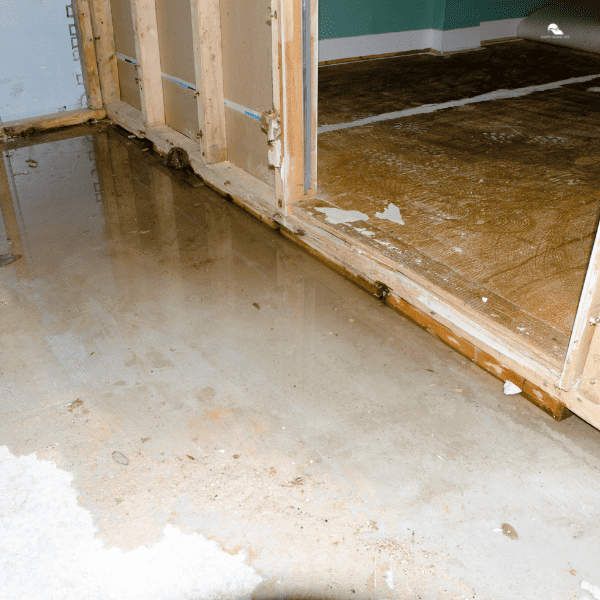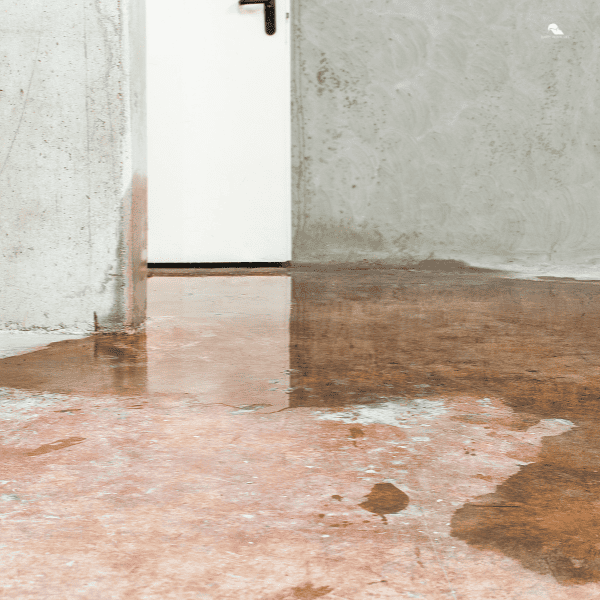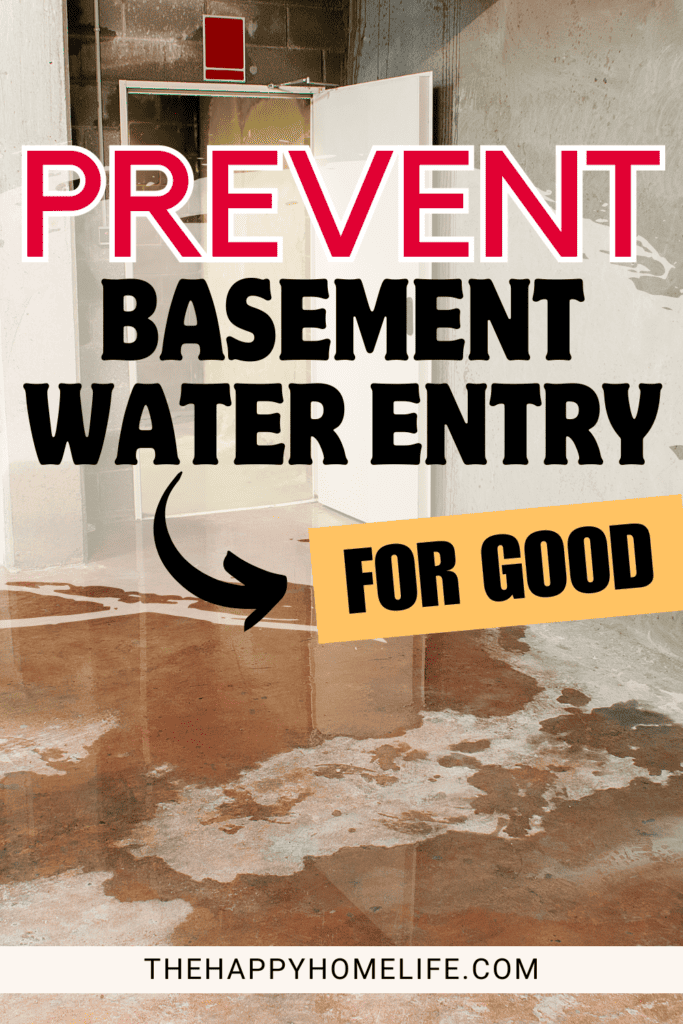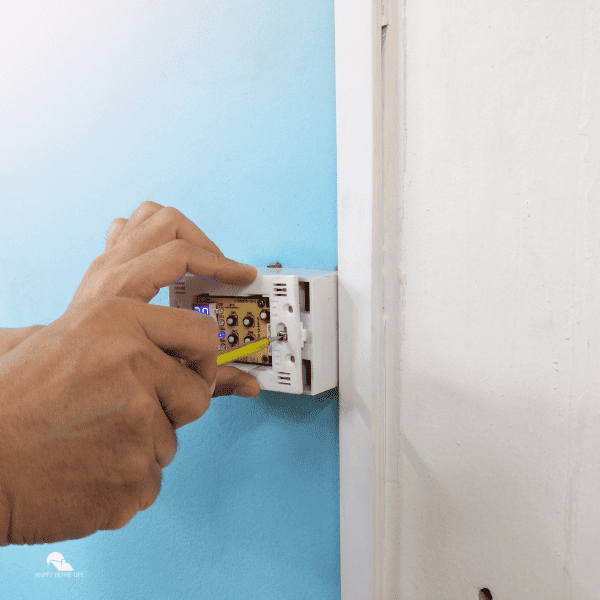As a homeowner, one of your biggest nightmares may be having water enter your basement. Not only can it damage anything stored in the basement, but it can also cause structural problems and lead to expensive repairs. However, with proper preventative measures in place, you can protect your home from this potential disaster.
In this guide, we will discuss some common causes of water entering basements, signs to look out for, and most importantly, how to prevent it for good. By following these steps and taking necessary precautions, you can ensure that your basement stays dry and your home remains safe from water damage. So let’s dive in (pun intended) and learn more about keeping water out of your basement!

What Causes Water to Enter Basements
Water entering basements can be caused by several different factors, including heavy rainfall, poor drainage, improper grading of the land surrounding your home, and cracks in foundation walls or floors. Heavy rainfall can cause water to pool around the foundation of your home, which can eventually seep into the basement. Poor drainage can also contribute to this issue as it allows water to accumulate and not properly flow away from the house.
Additionally, if the land around your home is not properly graded, it can allow water to flow toward the foundation instead of away from it. Lastly, any cracks in foundation walls or floors can act as entry points for water to seep into the basement.
Tips for Preventing Water from Entering Your Basement
There are a few key steps you can take to prevent water from entering your basement. First, make sure your gutters and downspouts are clear of debris and in good working condition. This will allow rainwater to flow freely and direct water away from the foundation and basement. You can also consider installing extensions on your downspouts to further divert water away from the house.
Furthermore, regularly inspect your basement for any cracks or openings that could potentially let water in. These should be sealed promptly to prevent any future issues. Finally, make sure the land around your home is properly graded so that water flows away from the foundation instead of towards it.
Recognizing the Signs of Water in Your Basement
It’s important to be able to recognize the signs of water entering your basement so that you can address the issue as soon as possible. Some common signs include musty odors, mold growth, damp walls or floors, and standing water. You may also notice peeling paint, rust on metal fixtures, or efflorescence (white powdery residue) on the walls or floors.
If you see any of these signs, it’s important to take action immediately to prevent further damage. Regularly checking for these signs can help you catch water entering your basement early on and address any underlying issues before they become serious problems.

The Dangers of Water Damage to Your Home
Water damage can have serious consequences for your home if left unchecked. It can weaken the structural integrity of your house, causing cracks in walls and foundations, which can lead to costly repairs. Water damage can also create a breeding ground for mold and mildew, which not only poses health risks but can also cause further damage to your property.
If left untreated, water damage can also cause permanent damage to your belongings, such as furniture and electronics. It’s important to take preventative measures and address any signs of water entering your basement to avoid the potential dangers of water damage to your home.
Essential Maintenance Tasks to Keep Basements Dry
Regular maintenance is crucial for keeping your basement dry and preventing water from entering. Some essential tasks to include in your maintenance checklist are regular gutter cleaning, checking for cracks or openings in foundation walls and floors, and inspecting the grading around your home. You should also check for any leaks or plumbing issues that could potentially lead to water seeping into your basement.
It’s important to address any issues as soon as possible to prevent them from escalating and causing more damage. Another important maintenance task is to regularly check and maintain your sump pump if you have one.
This device helps remove excess water from your basement and can be vital in preventing flooding. Make sure to test it periodically, clean out any debris, and consider installing a battery backup system in case of power outages. If you have any landscaping around your home, be sure to regularly trim and maintain it to prevent overgrowth and drainage issues.
Professional Solutions for Waterproofing Your Basement
If you are experiencing persistent water entering your basement despite taking preventative measures, it may be time to consider professional solutions for waterproofing. This can involve installing a drainage system around the perimeter of your home, such as a French drain or exterior waterproofing membrane. These systems help redirect water away from the foundation and prevent it from seeping into the basement.
Another option is to have a waterproofing sealant applied to the interior walls and floors of your basement. This creates a barrier against water and can also help with any existing cracks or openings.
Another potential solution is installing a vapor barrier, which helps prevent moisture from entering your basement. In addition, if you have a high water table in your area, investing in a sump pump with additional features such as a backup battery or alarm system can provide extra protection against flooding.
It’s important to consult with a professional waterproofing company to determine the best solution for your specific needs and budget. They can also provide regular maintenance and inspections to ensure that your basement remains dry and protected from water damage.
Preventing water from entering your basement requires a combination of regular maintenance and preventative measures. Keep your basement well-maintained by checking for any cracks or leaks in the walls or foundation and addressing them promptly. Installing a sump pump and a drainage system can help divert water away from your basement.
Consulting with professionals, such as waterproofing experts, can provide valuable insights and recommendations tailored to your specific situation. By taking these proactive steps, you can ensure that your home remains safe from water damage, giving you peace of mind and confidence in the protection of your basement against any potential water-related issues.







